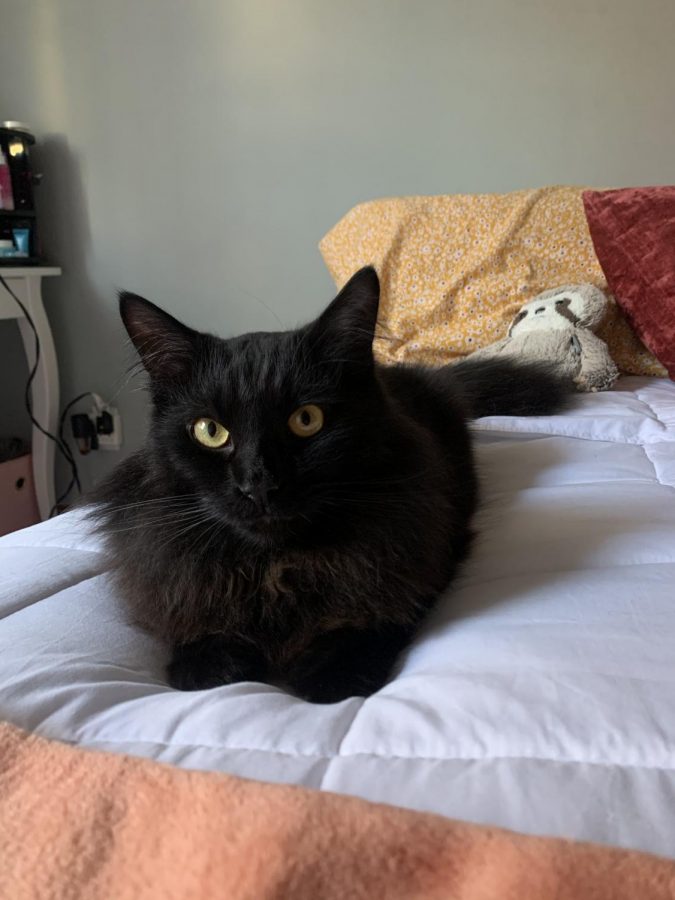West Virginia animal shelter needs supplies for homeless cats, here is how you can help
On April 6, an anonymous donor dropped off over 40 cats at the Little Victories Animal Shelter in Ona, West Virginia. According to WFXR news, Little Victories Animal Rescue Executive Director Stephanie Howell, said, “[Tuesday] morning, our site manager Josh Morrison showed up here at the farm and there was a crate that was holding 44 cats and kittens. In just one crate.” Since the shelter is not used to dealing with such a large number of animals at once, they have been struggling to manage the overflow and are looking for alternative ways to receive help.
According to their website, “Little Victories purchased 115 acres of land to create a sanctuary for homeless, injured, abused and abandoned animals.” Their mission statement says, “The mission of Little Victories is to rescue homeless animals and provide the means by which they can be rehabilitated and find permanent, loving homes.” The site also says they “rescue and rehabilitate homeless, injured, abused and abandoned animals.”
The shelter is used to seeing roughly 35 cats at the most, now the number is well over that will the surplus of 44 cats and kittens added. According to WFRX, Ben Miller, an assistant manager at the shelter said, “We don’t have the medical supplies to help them in the way that we can. Even with the litter and all the cat food that we have, it’s still gonna be rough.” Howell added, “We will do everything medically possibly needed for them, so we’re looking at probably about an unexpected 25 thousand dollar expense with this many pets.”
Howell told WFRX that cats can have anywhere from one to eight kittens per litter, and once a cat is just four months old, she can begin to have babies. She also said it’s not unusual for cats to have multiple litters within a year since they only carry for a few months. Overpopulation stems from owners not taking proper care of their pets. Spaying and neutering are essential to avoid situations like this. It’s devastating, not only to the cats themselves but to the shelter as a whole—the staff now has to come up with thousands of dollars to ensure the animals are properly taken care of when this could’ve been avoided in the first place.
Kate Roberts, a freshman at WLU, shared her thoughts after hearing about this situation. Roberts says, “It’s kind of a good thing and bad thing. It’s nice that the donor dropped off the cats to somewhere they’d be safe, but they should’ve called first to ask for more resources to avoid an overcrowded shelter,” She went on to say, “I think there’s also an issue with pet owners not spaying and neutering their animals because things like this keep happening. So many animals are already without homes and shelters are being overrun.”
Megan Ennis, a junior at WLU, also shared her opinion on the matter. She says, “I do find it sad that this number of cats were dropped off, but I also find it respectable because the person probably knew they wouldn’t be able to take care of them the way they should,” She went on to say, “I ultimately believe it should be up to the owner to get a cat spayed/neutered. If all cats were, there would be no more animals. I do think it’s important for a lot more to be spayed than there are, but I don’t think it’s always necessary as long as the owners take responsibility.”
Creed Kidney, a freshman at WLU, says, “It’s obviously terrible and really sad that these things happen, but I think the best thing to do would be to just continue educating the public and socializing people into getting their animals spayed and neutered so things like this don’t happen.” Anna Johnston, junior at WLU, says, “It makes me sad that a lot of animals get needlessly put down for reasons like this. I think the importance of neutering and such should be explained more thoroughly to animal owners so this situation could be easily avoided.”
Personally, I think owners should take pet care more seriously and consider spaying their animals more. I understand that money may be an issue at times, but when it comes to your animals, their health should be prioritized too. I recommend talking to your local animal shelters if your animal is not spayed/neutered or does not have its shots because sometimes they will work out a payment plan or even have emergency funds to use to help. Animals deserve forever homes and healthy lives, but they can’t all have this if pet owners continue to forgo spaying their animals.
To help the shelter, visit their website to donate and for more information on how to help. Also, check your local shelters to see if they are accepting donations too. Remember, animals need our support too.
Lizzy is currently a senior at West Liberty University and serves as the news/copy editor for The Trumpet. She is majoring in public relations with a minor...







